Thirty years ago, an interest in history lured English-born and now Asheville-based artist Julyan Davis to the United States, and he’s been painting scenes of the American South ever since. His portfolio, represented in museums and collections worldwide, includes depictions of vanishing landscapes and a series of paintings that visualize murder ballads.
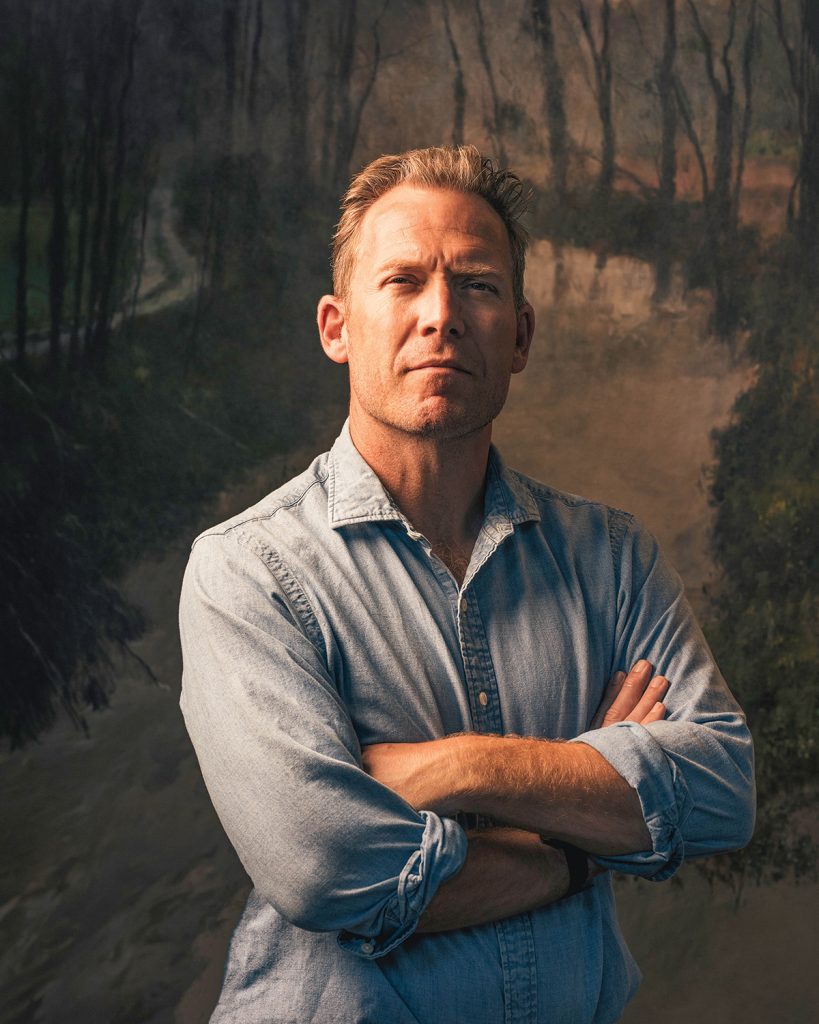
Portrait by Clark Hodgin
Many songs in this traditional subgenre date back some 400 years, to the British Isles, portraying violent crimes that were the news of the day. The ballads were brought by settlers to the Southern Appalachians and shaped over centuries in the timbre of the rugged new land, sung a cappella and as fiddle tunes. Some are obscure and others well known, like Pretty Polly, about a girl murdered by her fiancé.
Using oil on canvas, Davis further interprets the theme through the lens of the contemporary South. His non-narrative paintings capture some of the Carolinas’ most heartbreakingly beautiful landscapes, always tinged with noir: a stormy coastal scene, an abandoned barn on a cold mountain hillside. Davis’ work appears this month at Mars Hill University, part of a celebration in honor of Madison County folklorist Bascom Lamar Lunsford.
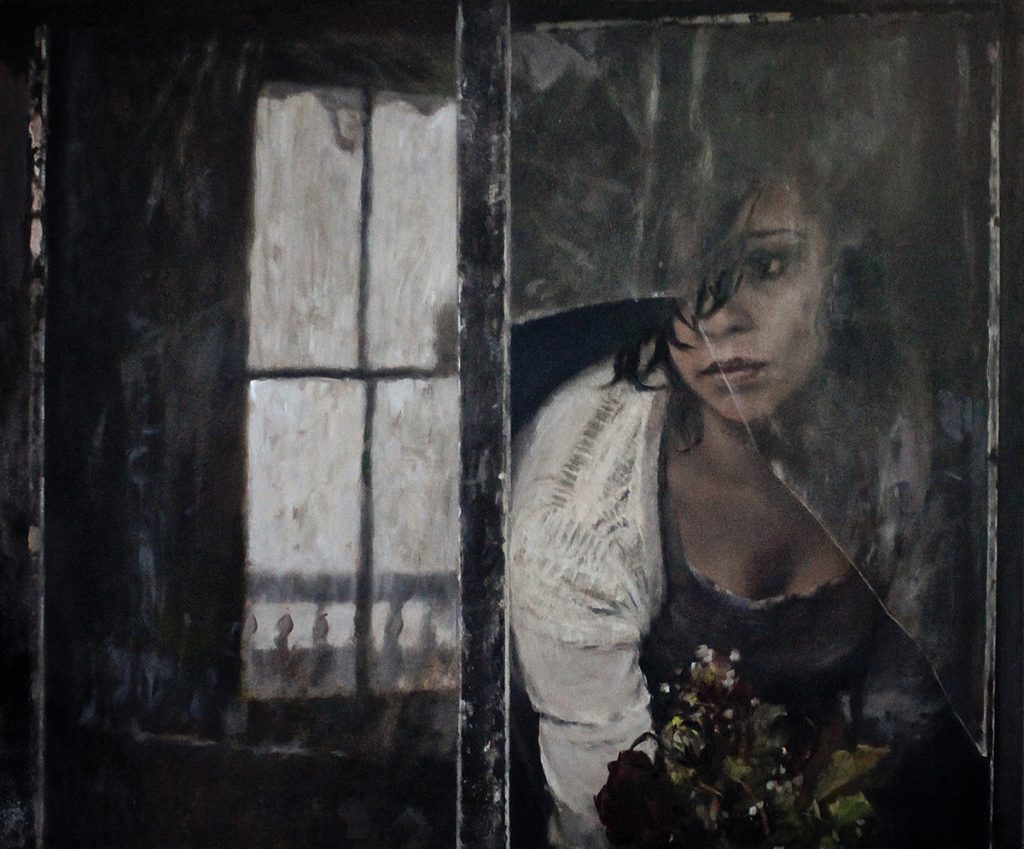
Where did your narrative style begin?
My father was a writer, and I’m a storyteller, and I did a lot of narrative painting when I was younger. But in art school, they weren’t that supportive of it. I returned to it over the last decade, and I’m glad I did. I’m being truer to myself.
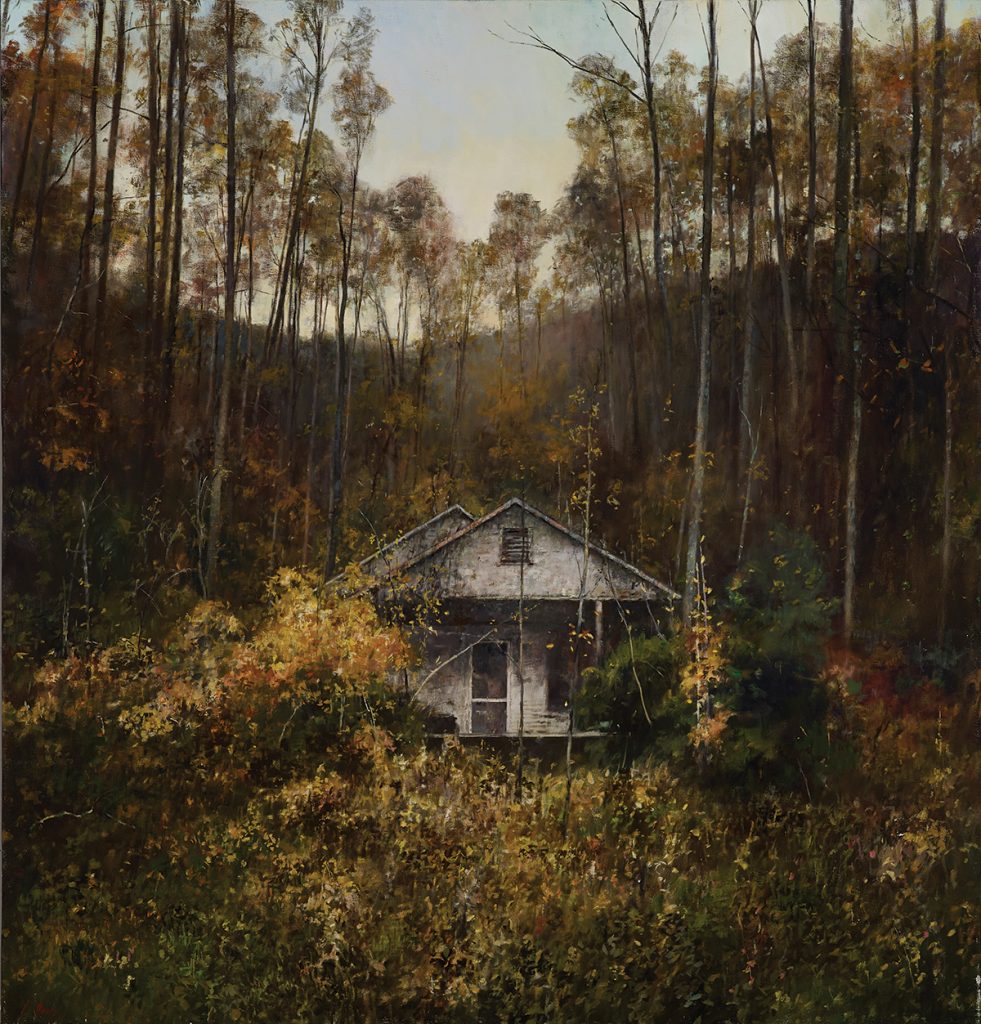
Many of us who are writers relate to how you tell stories with paintings.
Writers tend to respond really well to them. Right now I’m working with poet Glenis Redmond to tell this legend from an old slave myth about mermaids and African water spirits in the swamps around Charleston, South Carolina.
I read interviews where people swore they saw the mermaids, and if you left bread out on the shore, they’d eat it.
Originally, I was going to do it as a graphic folk-art novel. As I was imagining and drawing the creatures, I realized they needed to be large and religious looking, with big ornate frames. There will eventually be 14 huge paintings to make up the “Mermaid Storm” series.
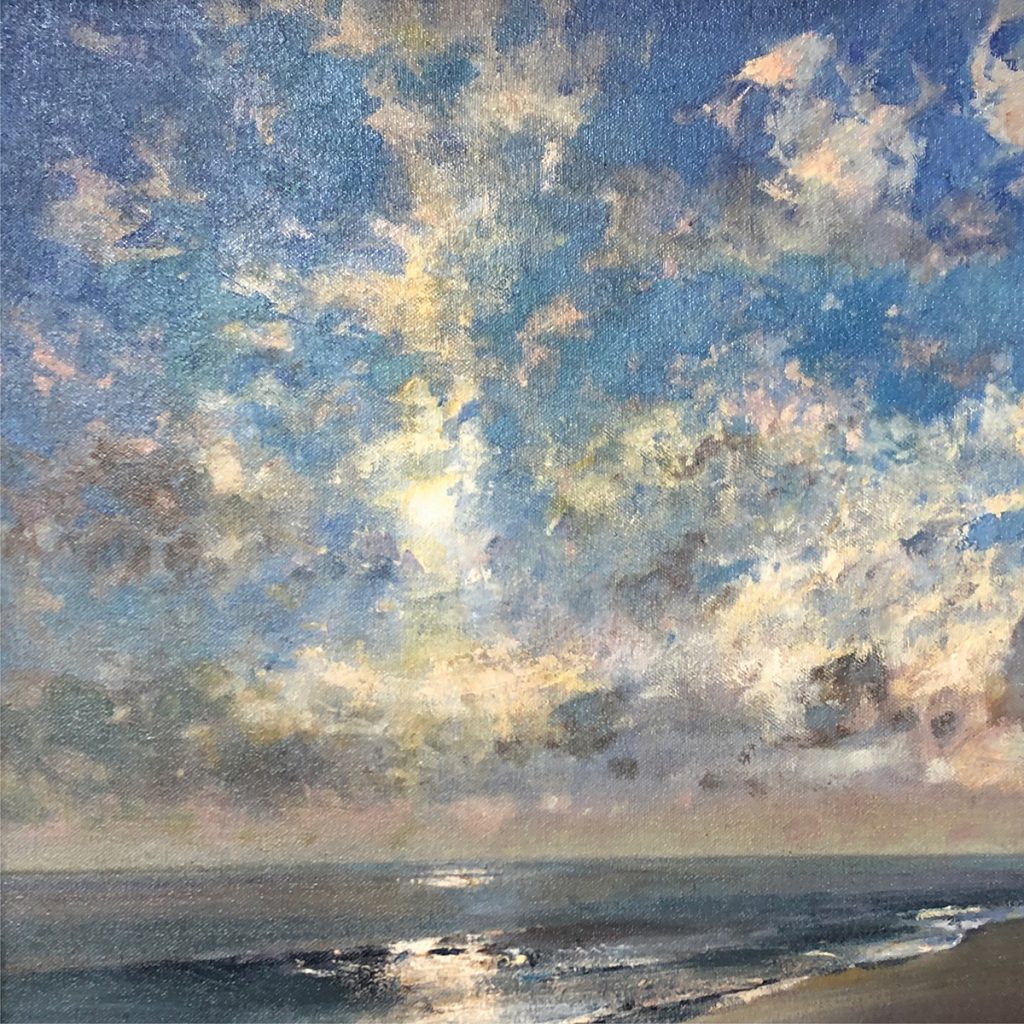
Your work also resonates with well-known Americana songwriters.
Gillian Welch and Lucinda Williams have responded to it. Gillian gave me permission to name one my contemporary murder-ballad paintings after her song “Caleb Meyer” [about a young woman who kills her would-be rapist]. I want to do more paintings and have songwriters collaborate.
People ask songwriters if the melody or lyrics come first, so with paintings, do the songs or scouted locations come first?
My initial way was to take favorite songs and scout locations. That quickly changed to where I’d find a location I like and work with my model to create the painting. Then I’d go back to and find a song that that worked with that painting.
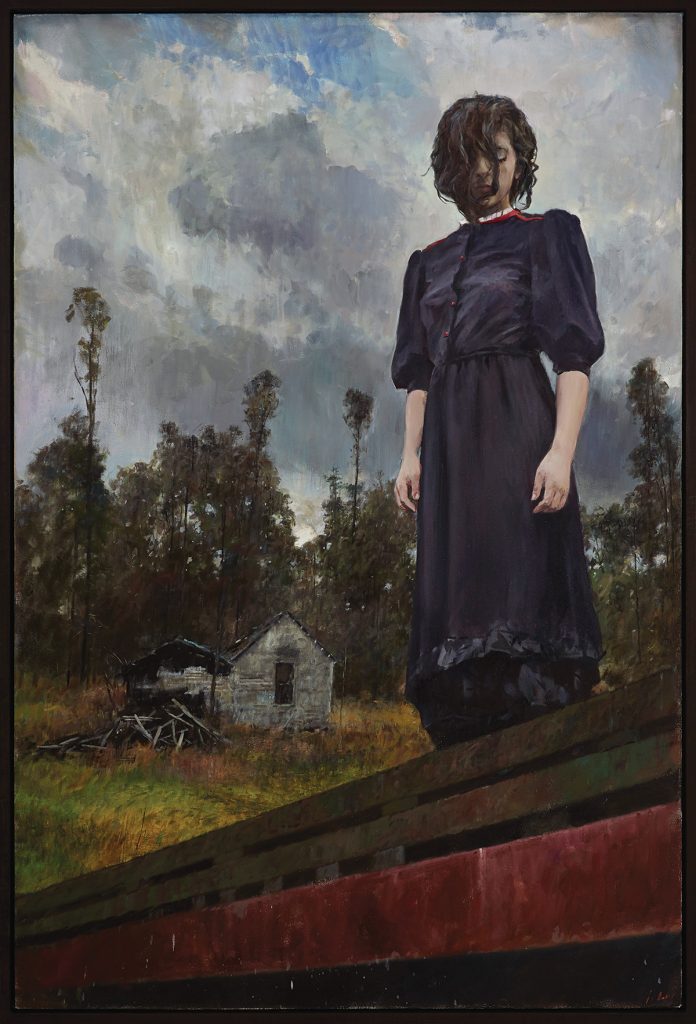
During the Lunsford Music Festival, are your paintings going to be displayed inside the university’s Weizenblatt Gallery?
Yeah, I’ve built up a traveling museum. But when you do a narrative series, if you sell one of the paintings in it, then what?
Oh, is it like you sold off a chapter from a novel, messing up the whole story?
Yeah, so this series has become an expensive hobby (laughter).
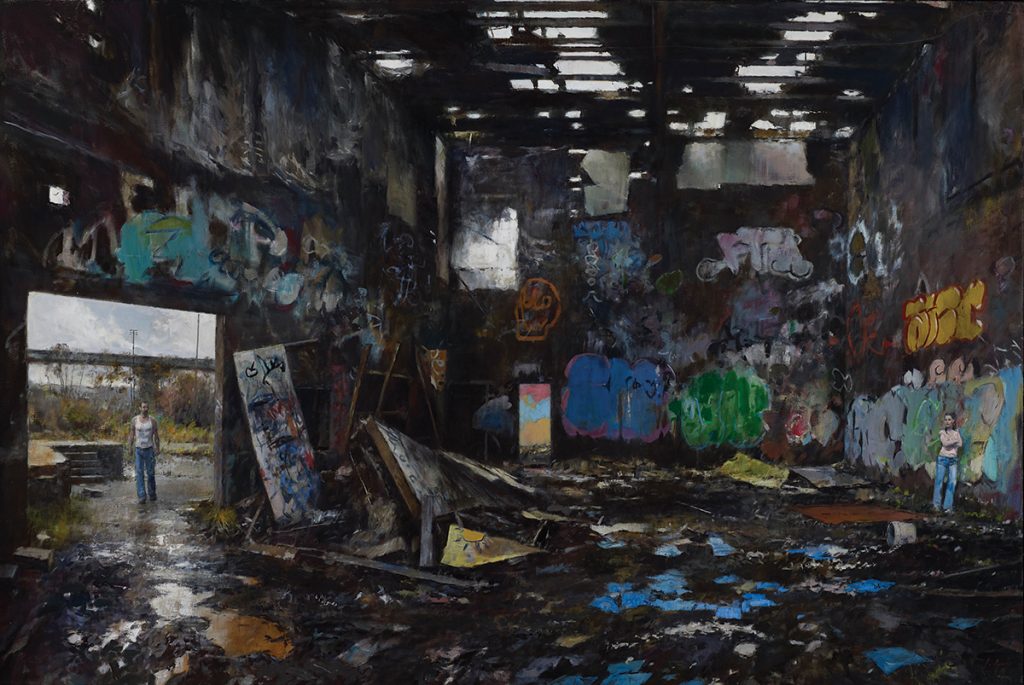
But the Murder Ballad series is so popular and timely; it’s taken on a life of its own.
After the show at Mars Hill, it’s going to Appalshop, in Whitesburg, Kentucky, and I’m really excited about that. There’s a radio station there that looks like an old barn, [a media] archive, and a documentary-filmmaking studio. It’s celebrating its fiftieth year.
A radio station that also does movies and art exhibits?
Yeah, and it’s very real. You get there and don’t even know what century you’re in.
Julyan Davis, North Asheville. Davis is represented by Blue Spiral 1 (38 Biltmore Ave., downtown Asheville, bluespiral1.com). The Murder Ballad Series is on display at Weizenblatt Gallery, Mars Hill University, through Friday, Oct. 18, complemented by old-time-music performances during the Lunsford Festival (Saturday, Oct. 5, 10am-7:30pm, mhu.edu). The series then travels to Appalshop, Whitesburg, Kentucky, show-ing in November and December (appalshop.org). Davis is also part of the Beaverdam Studio Tour happening Saturday, Oct. 26 and Sunday, Oct. 27 (see beaverdamstudiotour.com for a list of studio addresses). For more information about the art-ist, see julyandavis.com.